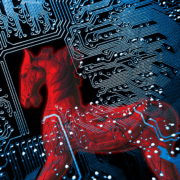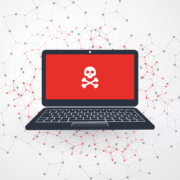The new NoSpamProxy version offers numerous enhancements and convenience functions for administrators and users. The sophisticated URL Safeguard enables the rewriting of URLs in incoming emails and checks the URL at the time the user clicks on it to see if there are any negative estimates for the URL. In Version 13, the optional Sandbox Service provides an additional level of email security. The near- comprehensive support of the S/MIME 4.0 standard, which Net at Work is the first manufacturer worldwide to offer, as well as a multitude of improvements that further increase the security of email communication round off the new version.
Criminals have recently launched a wave of email attacks targeting industrial AutoCAD files. The focus is on companies in the renewable energy and automotive sectors. Industrial espionage thus reaches an unprecedented scale.
A new wave of spam emails and viruses is currently affecting IT systems around the world. Since early November 2018, fake invoices, bank account warnings and other forged documents containing malicious code in the form of banking trojan Emotet are being distributed.
With the last Microsoft patchday on September 12th, a security update for the .NET framework was released, which closes a critical vulnerability. To exploit the vulnerability, the victim must open a document specially prepared by the attacker. Even if there is no direct danger for NoSpamProxy customers, we recommend installing the update. Further information and the download links can be found here.
Ransomware such as Locky, WannaCry and GandCrab has been making headlines lately. Criminals use this type of malware to gain access to individual files or the entire computer. At the same time, they prevent access by the rightful owner by means of encryption. The owner is allowed access only after a ransom has been paid.
The University of Rostock replaces Sophos and Vamsoft with the central email relay NoSpamProxy to ensure secure and uninterrupted email communication for more than 16,500 users. With NoSpamProxy Protection, students and staff avoid spam and malware as completely as technically possible.
Dear NoSpamProxy customers,
since a few hours we see in customer environments that send outgoing e-mails from O365 via NoSpamProxy the error “Unable to relay”. We found that Microsoft uses a new certificate to identify all Office 365 email servers, which was issued by a GlobalSign CA rather than Microsoft’s own CA. The NoSpamProxy security check to see if the server is a valid “company e-mail server” fails and the e-mails are rejected. A new Fast Channel Version is available to fix this issue.
We apologize for any inconvenience caused.
Your NoSpamProxy Team
The #Efail debate has caused great uncertainty among users and IT departments regarding the effectiveness of email encryption. Headlines such as S/MIME and PGP hacked were not only factually incorrect, but also led some self-proclaimed experts to advise against the use email encryption in general. The fact that the problem is not S/MIME or PGP itself was completely ignored. In reality, encryption is bypassed by getting the email client to send the plain text of the email to the attacker.
NoSpamProxy
Categories
Latest News
 Phishing in the cloud: attack vector archive.org16.04.2024 - 10:00
Phishing in the cloud: attack vector archive.org16.04.2024 - 10:00 The 32Guards Sandbox, or: Tales from the sandbox05.04.2024 - 10:00
The 32Guards Sandbox, or: Tales from the sandbox05.04.2024 - 10:00 A quantum-safe future with crypto-agility21.03.2024 - 09:00
A quantum-safe future with crypto-agility21.03.2024 - 09:00






